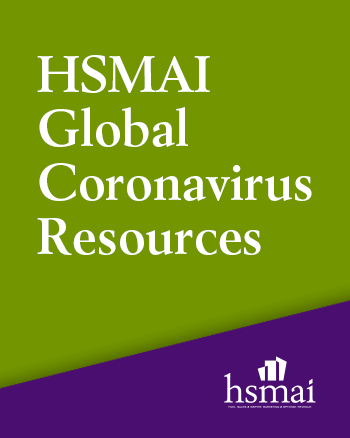By Kaitlin Dunn, Writer, Hospitality Sales and Marketing Association International (HSMAI)
 HSMAI hosts regular Executive Roundtable programs for senior hospitality professionals to meet and discuss relevant issues. Typically, these are face-to-face events, but due to the coronavirus, HSMAI hosted a Brand Chief Revenue Officer Virtual Roundtable on March 24 that focused on the impact that COVID-19 is having on hotel revenue optimization.
HSMAI hosts regular Executive Roundtable programs for senior hospitality professionals to meet and discuss relevant issues. Typically, these are face-to-face events, but due to the coronavirus, HSMAI hosted a Brand Chief Revenue Officer Virtual Roundtable on March 24 that focused on the impact that COVID-19 is having on hotel revenue optimization.
Here are six key indicators that Roundtable participants said they are seeing domestically and abroad that can be used to determine how the hospitality industry is doing — and what might be ahead!
1. BOOKING PACE IN CHINA:
Several revenue professionals said that they are monitoring their hotels’ booking pace in China, which is in the process of recovering from the coronavirus, while also noting that there are huge differences between the two countries’ responses. “We’re watching our hotels to see when they’re reopening, but the problem I keep pointing to is that China did an extraordinary job of quarantining people and we’re doing a horrible job of that in America,” one Roundtable participant said. “As much of an indicator China may be, I think that our timeline is going to be much further out until there is more of a significant response to these requests to self-quarantine and isolate.”
2. WHITE HOUSE RESPONSE:
One of the biggest indicators noted was how the White House and the rest of the federal government respond to the crisis. “How the White House reacts and the decisions they make,” a participant said, “is going to be a huge impact on how we approach our business.”
3. CUSTOMER SENTIMENTS:
It’s important to hear from customers and know what they are thinking in order to get a better idea of when they will begin to travel again. “The initial sentiments are that they will first start traveling when business opens up, and then think about vacations,” a Roundtable participant who had already surveyed customers said. “They’re looking at dates into June right now. We’re trying to capture these sentiments and make some logical business decisions.”
4. MARKET FLUCTUATIONS:
Market fluctuations and consumer confidence in the economy could offer an early predictor of how soon things may bottom out — with economic impacts possibly lasting far longer than the pandemic itself. “I think the reality is, as much as people say they can’t wait to get back on the road,” one revenue professional said, “the implications of furloughs and layoffs are going to play into people’s disposable incomes and how much they’re going to be able to travel.”
Another Roundtable participant added: “Also, on the business side, even though we see companies asking us to rebook their meetings, when this calms down, companies might look at their balance sheets and they might not be having that meeting.”
A third participant said that the overall unemployment rate will probably be the biggest indicator. “It’s a good read on the overall impact on the economy,” the participant said, “and that’s what’s going to impact business travel.”
5. TRAVEL BANS:
With government-issued shelter-in place orders, bans on gatherings, and closings of nonessential businesses, fewer people are able to travel. But how long will that last? “It’s my fullest expectation that those travel bans are going to continue long past the health portion of this crisis,” one Roundtable participant said. “If that’s an indication on how other companies are thinking, there’s going to be a lingering effect of corporate belt tightening, probably through the end of the year.”
On the opposite end, another revenue professional said they know of a company trying to rent out a restaurant as soon as mid-April, despite many governments issuing stay-at home orders until then. “That blew my mind,” the participant said. “I think for some companies the reality hasn’t sunk in yet.”
6. OTHER INDICATORS:
Roundtable participants touched on several other indicators as well. Specific provisions of any federal stimulus package, for example, could benefit the hospitality industry. The package, which passed on March 26, offers numerous delays on corporate and business taxes and allows the hospitality industry to immediately write off the costs of building improvements.
Another indicator to watch is the airlines, which right now are struggling and not running many flights. If and when airlines begin to run their full fleets again, it will show that people are traveling and will also need hotels.
For additional information, insights, and tools, visit HSMAI’s Global Coronavirus Resources page.
